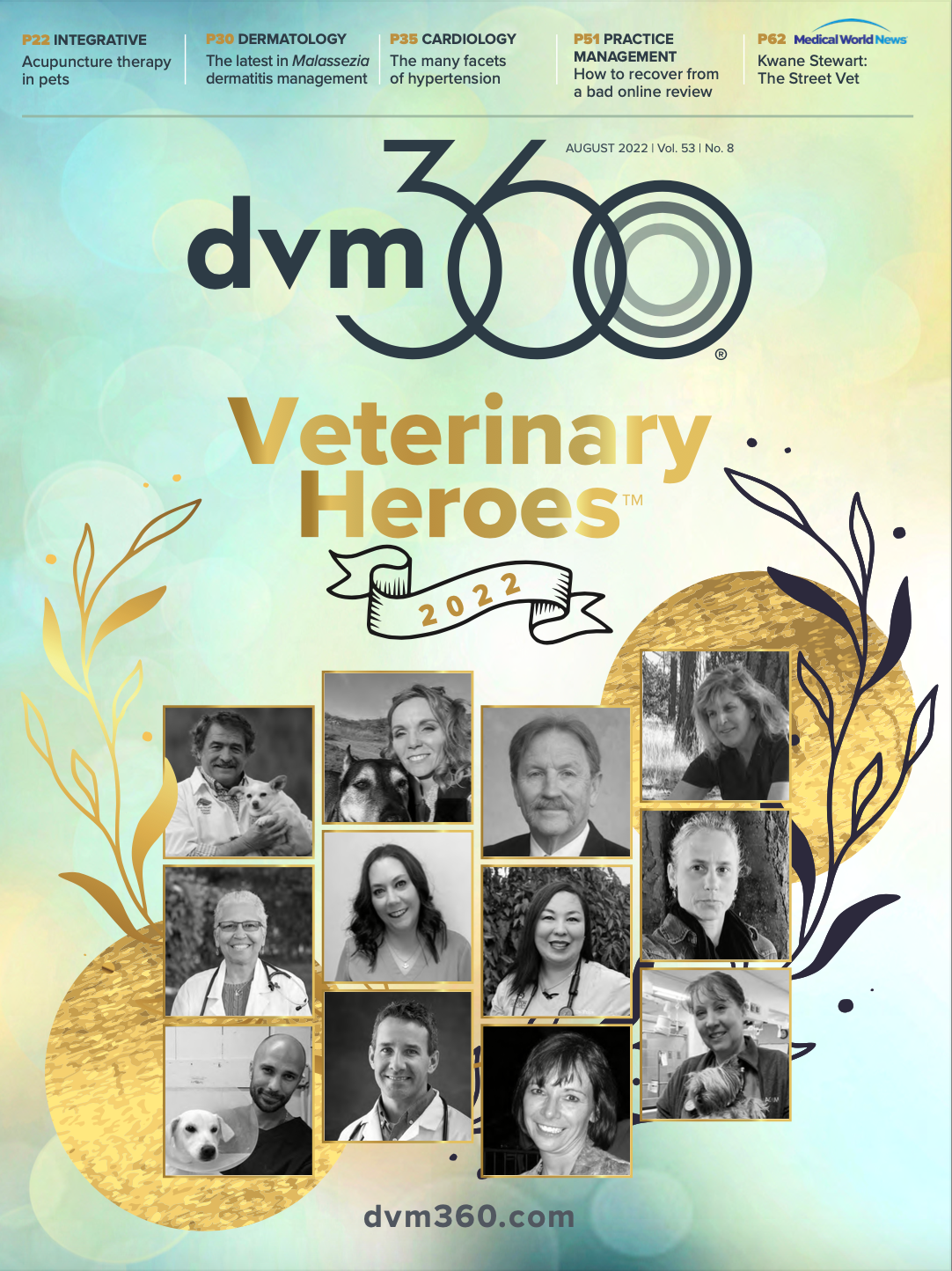Shandell Maxwell, PhD, didn’t grow up in a family that took pets to the vet. “If Cuddles got sick, Cuddles ‘ran away’ because we weren’t taking Cuddles to an animal hospital. And although my middle-class parents could afford care back in the ’80s, it wasn’t a norm in the Black community to take animals to the vet,” she reminisced.
Growing up as a Black female, Maxwell described how the veterinary industry didn’t seem to be for people like her. It’s not surprising, seeing as the Bureau of Labor Statistics reported that as of 2019, close to 90% of veterinarians are White, making it one of the least diverse health care professions.1 Maxwell described her experience working in the veterinary industry and how she was often the only Black person in the room. “Working in the industry and feeling the pressure to change the perception of others who may have never worked with a Black person was a tough responsibility,” she said. She went on to explain how history has painted Black people as being lazy workers and better suited for serving than leading and how she hoped her work ethic would change the perception of those who carried that belief.
“The industry should reflect the communities it serves,” she said, noting the diversity disparity within vet staffing. Maxwell has been promoting the need for diversity, equity, and inclusion (DEI) since 2013. However, it was during the pandemic and after nearly 25 years of working in and out of the veterinary industry that she launched her own business, Byrd and Maxwell Coaching Institute, and took her passion to the next level. She now provides coaching and educational services that help professionals level up, especially as it relates to understanding DEI in the context of the vet industry.
The pandemic brought forth a huge influx of vet appointments. “There’s a talent crisis. There is a shortage of staff,” she said. Maxwell believes that hiring with diversity in mind allows for stronger connections with clientele, and could be an answer for finding qualified workers to meet the demand. “Hiring people with transferable skills and increasing awareness about the field to unrepresented groups and providing them employment [are ways] of filling that talent gap,” she said.
Resources recommended by Maxwell
- UNBIAS: Addressing Unconscious Bias at Work by Stacey A. Gordon
- Diversity Beyond Lip Service by La’wana Harris
- Navigating Diversity and Inclusion in Veterinary Medicine by Lisa M. Greenhill, Kauline Cipriani Davis, and Patricia M. Lowrie, and Sandra F. Amass
- American Veterinary Medical Association’s diversity, equity, and inclusion resources and tools
Knocking down the diversity barriers that impede on the industry’s growth also starts with outreach to younger generations that can add diversity to both the workforce and clientele, Maxwell noted. “Although I grew up with animals, I was not aware that I could be a veterinarian or vet tech,” she said. “Information about those trades were not introduced to me during school or after I graduated. Instead, I was encouraged to become a certified nurse assistant or licensed vocational nurse in human health. Those programs were highly promoted when I was in high school.”
“Once I entered the veterinary field, I felt that the industry was exclusively for White people or people who had extra money to take care of their pets because that was all I saw in the veterinary hospitals, especially in Orange County, California,” Maxwell added. “But as I learned more about pet care and how it compared to the importance of human health, I began taking my pets to the hospital for care, and my family did as well.”
The love of animals has no color lines, and sometimes it only takes one person’s experience to inspire others to change their perception. “I think about the children who are being raised with pets and who are being socialized to be pet owners,” she said. “Those children are the children of the future. Those are the future pet owners and future veterinarians and vet staff workers.”
Maxwell is also passionate about uncovering the unconscious biases we may bring into the workplace, specifically relating to medical ethics. “When [veterinarians] think about making a judgment toward treatment, what they have to consider [are] the patient’s needs, the client’s welfare, and public safety. Being able to make a judgment on those areas means that any biases have to be removed.”
To bring this important work to fruition, Maxwell works as a coach for industry leaders as a DEI consultant for The Veterinary Cooperative, and she will also be launching an online course called “Embracing Diversity, Equity, and Inclusion in a Veterinary Hospital” in early 2023 for employees to earn continuing education credit. She also provides DEI resources on her website.
Maxwell is passionate about expanding DEI practices in the veterinary industry—which may one day include her daughter, who dreams of becoming a veterinarian. Maxwell envisions a space where “differences are recognized and respected, unique skills and talents are utilized appropriately, and leadership understands their team’s capability and invests in creating an environment where everyone feels seen and supported.”
Written by: Kaci Sintek grew up raising livestock, which ignited a deep love of animals. She now works as a marketing, communications, and public relations professional out of Denver, Colorado.
Interviewee: Shandell Maxwell, PhD is a diversity, equity, and inclusion coach and speaker in the veterinary field. Her company, Byrd and Maxwell Coaching Institute, seeks to prepare people for greatness through professional and personal life coaching.
References
Household data annual averages: employed persons by detailed occupation, sex, race, and Hispanic or Latino ethnicity. US Bureau of Labor Statistics. Accessed July 13, 2022. https://www.bls.gov/cps/cpsaat11.pdf
